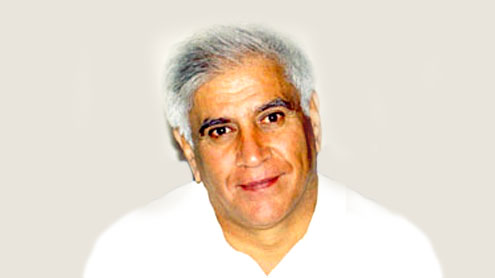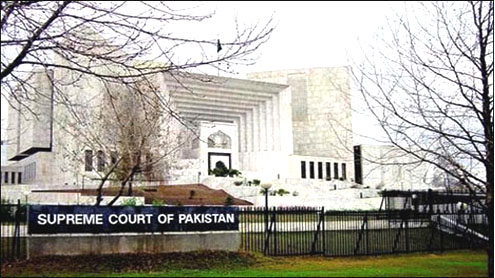 The survival instinct works wonders. It is a small price to pay — perhaps even an irrelevancy really — if a diseased mind, in its quest for survival, or mental tranquillity and equilibrium, creates a reality for itself that, to outsiders, appears to be based on a lie.Is there such a beast as a ‘national characteristic’ or a ‘national trait’?The Germans are much admired for their fiscal prudence, and the Swiss for financial probity. The Japanese are famous for being polite and the Chinese supposed to be inscrutable (whatever that may mean).
The survival instinct works wonders. It is a small price to pay — perhaps even an irrelevancy really — if a diseased mind, in its quest for survival, or mental tranquillity and equilibrium, creates a reality for itself that, to outsiders, appears to be based on a lie.Is there such a beast as a ‘national characteristic’ or a ‘national trait’?The Germans are much admired for their fiscal prudence, and the Swiss for financial probity. The Japanese are famous for being polite and the Chinese supposed to be inscrutable (whatever that may mean).
Napoleon once contemptuously referred to the English as ‘a nation of shopkeepers’. But I suppose they are better known for social and political discipline (the oft-quoted example being patiently standing in queue awaiting their turn). In the same vein, the Scots are considered dour and tight-fisted, Latinos mercurial and temperamental, and the Americans brash and unsophisticated, etc, etc.
In principle though, one should be wary of such generalisations concerning a people. For, genetically, we are all, more or less, products of the same biological template, with only minor variations. And, as a species, we humans do not exhibit much of what is technically called ‘phenotypic plasticity’.That said, it may well be the case that such convenient wholesale labelling may be more than merely a mythical construct.
It may reflect some kind of a statistical cultural reality, even if originally the label was of the popular media manufactured kind. Then, over time, culture, with its propensity to feed upon itself in a powerfully reinforcing manner, turns myth into social reality. For, individuals do exhibit such traits. Then, if a statistically significant number of them in a country adopt those traits — for any reason — the label sticks.
So, in this context, and with all its severely limited utility (if at all any) as a conceptual tool, are there some worthwhile generalisations to be made of Pakistanis? I am not thinking here of that knee-jerk reaction that automatically thinks ‘terrorism’ if the word ‘Pakistani’ is mentioned beyond our borders. That is as much a product of an ignorant, uninformed and prejudiced mind as hitherto many instinctively thought ‘usury’ at the mention of the word ‘Jew’. Besides, that particular current phobia is more about Muslims than Pakistanis.
No. I was thinking more along the lines of what a very high ranking ex-American government official recently said on US national TV: “Pakistanis are a nation of pathological liars” (do I remember correctly that our own defence minister voiced similar sentiments some time ago?). Has the double-dealing and hypocrisy (internally and externally) our power-brokers and decision-makers are constantly accused of by all and sundry (including many within our own fold) now become second nature for us after decades of assiduous practice?Such speculations are always triggered off by external factors. In the present case, I trace the stimuli to four sources.
The first — and strongest — came from watching a particularly exasperating episode of those futile shouting matches we witness every day on our talk shows, where hardly any of the participants (the anchor included) allows another to finish whatever he is attempting to say without himself jumping into the fray with both feet. Not that I do not usually sympathise somewhat with such offenders. Patience is sorely tested and the temptation to interrupt can be overwhelming when, instead of arguments, you are forced to listen to long-winded (and oft-heard) political platitudes.
The second prod came from discovering that Dr D&G (not ‘Dolce&Gabbana’ but ‘Doom&Gloom’) is back on our TV screens, after a hiatus that, alas, has been all too short-lived. How anyone with a perpetually frozen frown, utter lack of humour, and an over-ripe tendency for dark and convoluted thinking can become a media celebrity, defeats my puny intelligence. But then, has another ‘doctor’ (this one with the fake degree, the oiliest smirk south of the North Pole, and a compulsively smug and ingratiating demeanour), not wondrously achieved as much in our society? These days he is educating us about the signs that foretell the Day of Judgement, much as Dr D&G did some years ago. Allah be praised for his mysterious and superficially incomprehensible doings by blessing us with such worthies as guides and icons.
The third stimulus comes from my perusal of the e-mail exchanges between Pakistani journalist members of an internet group to which I belong as a silent member. Reading them daily never fails to generate a quiet wry smile of amusement that helps keep me cheerful and maintain my sanity. Here (with the usual few honourable exceptions) senseless personal tirades abound; prejudice and bias — and much ignorance — is often apparent; and no argument ever gets resolved. I reflect how earnest we are, and how seriously we take ourselves!
These three stimuli in turn reminded me of Dr Oliver Sacks, and his wonderful and matter-of-fact (yet sympathetically written) true-life case studies of some of his patients. Even though I read them more than two decades ago, I have never forgotten them. For, Sacks is a neurologist-cum-psychotherapist, and the case studies were of people normal in all other respects except for some brain damage producing the medical condition, ‘agnosia’.
The case of ‘The man who mistook his wife for a hat’, about a Doctor of Musicology who suffers from a severe case of visual agnosia, is the one I remember best. The doctor cannot recognise things around him (such as his own face in a mirror, his shoes, his hat, or even the face of his wife). But his musical ability remains unimpaired, and he is happiest when teaching, which remains unaffected. Moreover, he has found his own unique way of compensating for his disability to cope with the simple chores of daily life: he makes up little songs about those activities as he is doing them. But the moment he is interrupted he becomes helpless again. The most amazing part of the story is that he is totally unaware of his problem.
The other story I remember from the book is the one about the struggles of a sailor who suffers from Korsakoff’s syndrome (the impairment of the brain’s ability to form new memories) to somehow lead a normal life. The physical damage to the brain happened in 1945, and that is where his memory became frozen in time. Though otherwise normal, he just cannot remember any events in his daily existence since then, even something that happened a few minutes ago.
Assimilating all the above, I assume you can sense the drift of my thoughts. Is the human brain not astonishingly adept at somehow or the other finding ingenious ways to compensate for debilitating physical injury or acute mental stress? The survival instinct works wonders. It is a small price to pay — perhaps even an irrelevancy really — if a diseased mind, in its quest for survival, or mental tranquillity and equilibrium, creates a reality for itself that, to outsiders, appears to be based on a lie.
Am I going to conclude this ramble with a definitive answer to the question I started out with? As my cockney friends would say, “Not on your Nelly!” even though I confess to having some well-formed opinions on the subject. But I will let you guess what those might be. Why should I unnecessarily expose myself to a flood of abuse from that not statistically insignificant number within us burdened with inflated egos and blessed with prickly and self-righteous sensitivities? – Dailytimes – Munir Attaullah













